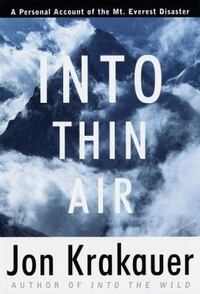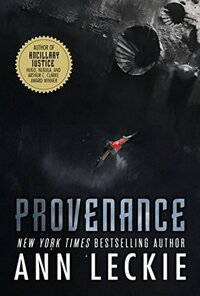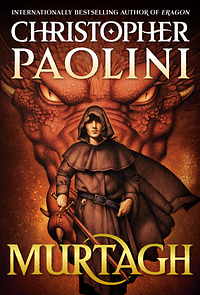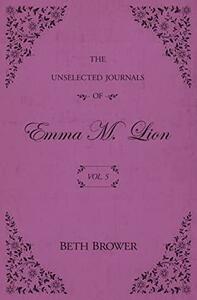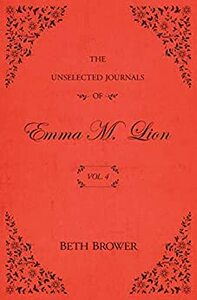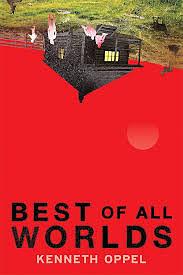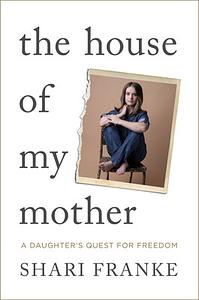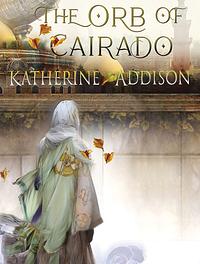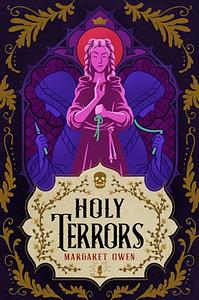Take a photo of a barcode or cover
toggle_fow's Reviews (1.05k)
adventurous
challenging
emotional
informative
reflective
sad
tense
medium-paced
Honestly, this is the first can't-put-it-down, stay-up-all-night nonfiction book I've ever read.
I know nothing about mountaineering, and only read this because I listened to Scary Interesting's YouTube video on this same disaster. Krakauer was a very able writer, evoking the sights, sounds, and emotions of his Mount Everest experience with striking language. He alternated between giving us historical and cultural context on Everest's history, background on the lives of his fellow climbers, and the actual play-by-play of what happened in a way that was effective at keeping my interest razor-sharp.
I learned a lot about the effects of high altitude on the human body, which are apparently MANY and BAD. Far too similar to being in outer space. Before, I had no desire to ever climb Everest and I have even less now, if that's even possible. Something else that stuck with me was the way he described the storm that caused this disaster as not even an unusual weather event.
Overall, I absolutely recommend this book if the content at all interests you.
I know nothing about mountaineering, and only read this because I listened to Scary Interesting's YouTube video on this same disaster. Krakauer was a very able writer, evoking the sights, sounds, and emotions of his Mount Everest experience with striking language. He alternated between giving us historical and cultural context on Everest's history, background on the lives of his fellow climbers, and the actual play-by-play of what happened in a way that was effective at keeping my interest razor-sharp.
I learned a lot about the effects of high altitude on the human body, which are apparently MANY and BAD. Far too similar to being in outer space. Before, I had no desire to ever climb Everest and I have even less now, if that's even possible. Something else that stuck with me was the way he described the storm that caused this disaster as not even an unusual weather event.
Overall, I absolutely recommend this book if the content at all interests you.
adventurous
emotional
hopeful
medium-paced
Plot or Character Driven:
A mix
Strong character development:
Yes
Loveable characters:
Yes
Diverse cast of characters:
Yes
Flaws of characters a main focus:
Yes
Ann Leckie can do no wrong, and I will live in the Imperial Radch world as long as she graciously allows me to.
This book takes us far from the places we've already been, to backwater planet Hwae. Ingray is an adopted daughter of a noble house, trying to stage a secret prison break for reasons of political advantage. It all goes wrong pretty much immediately, and things just continue to escalate.
There's family drama, murder, political maneuver, strange alien peoples, near-death situations, etc. Basically, what you would expect.
I really liked Ingray as a main character. I liked how she was genuinely bad at certain things (that prison break... GIRL) but also very competent in ways that even she didn't really appreciate. I liked how she was brave, loyal, and stubborn, but reacted to dangerous situations by almost always crying. I liked the twisted family relationships that she struggled with, and how she seemed to easily make allies and friends out of people. I liked how she genuinely needed to be saved, but also saved others through her own courage and ingenuity.
Overall, I adored this, which I'm sure surprises nobody.
This book takes us far from the places we've already been, to backwater planet Hwae. Ingray is an adopted daughter of a noble house, trying to stage a secret prison break for reasons of political advantage. It all goes wrong pretty much immediately, and things just continue to escalate.
There's family drama, murder, political maneuver, strange alien peoples, near-death situations, etc. Basically, what you would expect.
I really liked Ingray as a main character. I liked how she was genuinely bad at certain things (that prison break... GIRL) but also very competent in ways that even she didn't really appreciate. I liked how she was brave, loyal, and stubborn, but reacted to dangerous situations by almost always crying. I liked the twisted family relationships that she struggled with, and how she seemed to easily make allies and friends out of people. I liked how she genuinely needed to be saved, but also saved others through her own courage and ingenuity.
Overall, I adored this, which I'm sure surprises nobody.
adventurous
emotional
tense
slow-paced
Plot or Character Driven:
Plot
Strong character development:
Complicated
Loveable characters:
Yes
Diverse cast of characters:
No
Flaws of characters a main focus:
Yes
Rarely have I ever been so irritated.
This should have been an incredible book. Let's be real, Murtagh is a COMPELLING character. His impact on the original series is outsized compared to the time he actually spent on the page. Now, finally freed of his slavery, he and his dragon are roaming Alagaesia in search of the path forward.
There are so many awesome places you could take a story like this. Murtagh has A TON of delicious character growth to go through. Honestly, the plots just write themselves.
This book flirted briefly with some of those awesome places:
1) The first part, with the little tavern girl, was deeply enjoyable. Murtagh needs to be able to build connections! To care for others, and see that he can do so much more than just bring pain!
2) The werecat/city guard side quest was interesting.
3) It was interesting to be in Murtagh's head instead of Eragon's, and realize just how OP Eragon actually is. It gave Murtagh's adventures a much more scrappy, underdog feeling since he doesn't have access to all the magic power in the universe, just some.
4) Thorn finally overcoming his fear!!!! This got me!
5) The ending finally gave up the scene everyone reading this book was waiting for the entire time.
However, everything in the middle of the book was boring slush.
Murtagh runs across a magical artefact that is whispered to come from a mysterious, shadowy witch. For some reason that's not entirely clear, he decides that he MUST confront this witch and uncover her dastardly plot. Sure, the amulets are shady, but I really don't think he had seen enough to convince him that there's actually a serious threat before he had flown off into the uncharted wilderness.
Then, after finding the witch, Murtagh seems to sit around alternately arguing with her or brooding for a third of the book.
This should have been an incredible book. Let's be real, Murtagh is a COMPELLING character. His impact on the original series is outsized compared to the time he actually spent on the page. Now, finally freed of his slavery, he and his dragon are roaming Alagaesia in search of the path forward.
There are so many awesome places you could take a story like this. Murtagh has A TON of delicious character growth to go through. Honestly, the plots just write themselves.
This book flirted briefly with some of those awesome places:
1) The first part, with the little tavern girl, was deeply enjoyable. Murtagh needs to be able to build connections! To care for others, and see that he can do so much more than just bring pain!
2) The werecat/city guard side quest was interesting.
3) It was interesting to be in Murtagh's head instead of Eragon's, and realize just how OP Eragon actually is. It gave Murtagh's adventures a much more scrappy, underdog feeling since he doesn't have access to all the magic power in the universe, just some.
4) Thorn finally overcoming his fear!!!! This got me!
5) The ending finally gave up the scene everyone reading this book was waiting for the entire time.
However, everything in the middle of the book was boring slush.
Murtagh runs across a magical artefact that is whispered to come from a mysterious, shadowy witch. For some reason that's not entirely clear, he decides that he MUST confront this witch and uncover her dastardly plot. Sure, the amulets are shady, but I really don't think he had seen enough to convince him that there's actually a serious threat before he had flown off into the uncharted wilderness.
Then, after finding the witch, Murtagh seems to sit around alternately arguing with her or brooding for a third of the book.
Murtagh: Tell me where your power comes from, and what you want!
Witch: No. You must wait longer, for reasons I will not disclose, and then I'll tell you.
Murtagh: *angrily* Okay.
The above exchange happens like three times. Murtagh and Thorn mention to each other more than once that the witch is crazy powerful, that it seems she might have been a match even for Galbatorix. Then, when she finally DOES completely outmatch them, Murtagh seems surprised!
The witch's trap completely infuriates me. Like, yeah! Why don't we rehash old ground just one more time? It's not like we already went through this scenario for three whole books. I'm sure there's more this scenario has to offer us! Literally every conceivable plot under the sun was open to Paolini, and he had to choose to do the same thing again? Annoying. I'm annoyed.
emotional
funny
hopeful
lighthearted
medium-paced
Plot or Character Driven:
Character
Strong character development:
Yes
Loveable characters:
Yes
Diverse cast of characters:
No
Flaws of characters a main focus:
Complicated
Both the enjoyable and the irritating parts of this series remain a strong presence.
In this, now even JACK gets a sad, complex backstory while Emma's female friends remain sidelined and largely one-dimensional. Emma's Kindred Spirits Club with her collection of 30-year-old men continues to feature very, very (very) strongly.
HOWEVER... there are some hints of hope.
First, Emma is getting quite close to the finish line when it comes to her coming of age. A final reckoning with her overbearing aunt must certainly be on the horizon.
Second, the working through Emma's grief in this book and the previous one was well done. The weighty moments worked strongly against the more lighthearted, vivacious tone of the series.
Third, Emma's tete-a-tete with Hawke at the end hints at the plot perhaps eventually moving forward. It does get a little weird for Emma to soundly reject the idea of romance while being overtly attracted to Islington, Pierce, and Roland all at the same time. (She remarks on Hawke's good looks as well, but seems to hold him at more of a remove. Perhaps this is reverse psychology on the part of the author, though?) It's even weirder that she seems to have a whole harem to choose from, when the time comes, of men who are hovering in adoration.
It would be nice to have some of this dispelled, though I doubt the series will actually take that step until many books later down the road. However, I am going to take a bit of a break before going on with the next installment. I think my body has nearly reached dangerous Emma Lion toxicity levels.
In this, now even JACK gets a sad, complex backstory while Emma's female friends remain sidelined and largely one-dimensional. Emma's Kindred Spirits Club with her collection of 30-year-old men continues to feature very, very (very) strongly.
HOWEVER... there are some hints of hope.
First, Emma is getting quite close to the finish line when it comes to her coming of age. A final reckoning with her overbearing aunt must certainly be on the horizon.
Second, the working through Emma's grief in this book and the previous one was well done. The weighty moments worked strongly against the more lighthearted, vivacious tone of the series.
Third, Emma's tete-a-tete with Hawke at the end hints at the plot perhaps eventually moving forward. It does get a little weird for Emma to soundly reject the idea of romance while being overtly attracted to Islington, Pierce, and Roland all at the same time. (She remarks on Hawke's good looks as well, but seems to hold him at more of a remove. Perhaps this is reverse psychology on the part of the author, though?) It's even weirder that she seems to have a whole harem to choose from, when the time comes, of men who are hovering in adoration.
It would be nice to have some of this dispelled, though I doubt the series will actually take that step until many books later down the road. However, I am going to take a bit of a break before going on with the next installment. I think my body has nearly reached dangerous Emma Lion toxicity levels.
emotional
funny
hopeful
lighthearted
medium-paced
Plot or Character Driven:
Character
Strong character development:
Yes
Loveable characters:
Yes
Diverse cast of characters:
No
Flaws of characters a main focus:
Complicated
We seem to get on much as we began.
That is to say, Emma continues to face the tragedies and absurdities of her life with joie de vivre, courage, and an undaunted sense of humor. She continues to participate in various wild, increasingly unbelievable shenanigans. She continues to be doted on by a panoply of handsome, interesting men approximately 7 to 15 years older than her.
I have to admit, I am getting a little weary of the shtick. Emma's voice is as fresh and entertaining as always. I could overlook how Emma inevitably became the specialist quirkiest most unique princess of any smart, good-looking older man within approximately 1 day of meeting him when all these relationships remained informal and happenstance. Now that Emma, Hawkes, Islington, and Pierce have formalized their society of kindred spirits, I can't.
To all appearances, this series has as robust a cast of female characters as it does male characters. Agnes, Saffronia March, Mary, Arabella, etc. Surely it passes the Bechdel Test with flying colors?
However, these aforementioned women show up glancingly in Emma's story, and most often for a brief scene where they serve as a helpful plot device. The men are by far the most weighty relationships in Emma's life, and they are there every single entry of every single day. The story labors over their backstories, peeling back the layers with delicate artistry to hint at the unexplored emotional depths within. None of that work goes into the female characters. They are what they are, which is mostly a convenience.
Does Emma EVER go to a social event and not run into one of the men, even when she had no expectation of knowing anyone there? The exceptions to this pattern are: 1) Emma's meeting the banker's wife. This still serves as a plot device and convenience, since the woman becomes Emma's informal patroness, but I really enjoyed this anyway. And 2) Mary's adventure meeting her professor. I liked this a lot as well. I would be excited to see Mary get her own love story.
That is to say, Emma continues to face the tragedies and absurdities of her life with joie de vivre, courage, and an undaunted sense of humor. She continues to participate in various wild, increasingly unbelievable shenanigans. She continues to be doted on by a panoply of handsome, interesting men approximately 7 to 15 years older than her.
I have to admit, I am getting a little weary of the shtick. Emma's voice is as fresh and entertaining as always. I could overlook how Emma inevitably became the specialist quirkiest most unique princess of any smart, good-looking older man within approximately 1 day of meeting him when all these relationships remained informal and happenstance. Now that Emma, Hawkes, Islington, and Pierce have formalized their society of kindred spirits, I can't.
To all appearances, this series has as robust a cast of female characters as it does male characters. Agnes, Saffronia March, Mary, Arabella, etc. Surely it passes the Bechdel Test with flying colors?
However, these aforementioned women show up glancingly in Emma's story, and most often for a brief scene where they serve as a helpful plot device. The men are by far the most weighty relationships in Emma's life, and they are there every single entry of every single day. The story labors over their backstories, peeling back the layers with delicate artistry to hint at the unexplored emotional depths within. None of that work goes into the female characters. They are what they are, which is mostly a convenience.
Does Emma EVER go to a social event and not run into one of the men, even when she had no expectation of knowing anyone there? The exceptions to this pattern are: 1) Emma's meeting the banker's wife. This still serves as a plot device and convenience, since the woman becomes Emma's informal patroness, but I really enjoyed this anyway. And 2) Mary's adventure meeting her professor. I liked this a lot as well. I would be excited to see Mary get her own love story.
mysterious
tense
medium-paced
Plot or Character Driven:
Plot
Strong character development:
No
Loveable characters:
No
Diverse cast of characters:
Yes
Flaws of characters a main focus:
Complicated
Well, this was an interesting little sci-fi read.
A teenager and his blended family are on vacation by the lake. When they wake up, the lake is gone and they find themselves alone on a curiously contained farm. Is it a fever dream? Alien abduction? A parallel universe? A government conspiracy? They have no idea. All they know is they can't get out for three long years.
Then, another family arrives.
The teen and his family are pacifist, intellectual, mixed-race Canadians. The other family is American, led by their racist, conspiracy theorist, gun-toting, mentally unstable father.
The story is not about the sci-fi elements, or the mystery behind who kidnapped these people. It never really answers the worldbuilding questions, though it does heavily hint at the answers. Instead, it's about the conflict among the cast. Should they choose to content themselves with their domesticated life within the strict parameters of their captors (holy Canadians), or risk punishment and worse by rebelling against their captors (debased Americans) and trying to escape?
Xavier, our main character, is a likable everyman with perhaps one braincell. He is understandably torn between the two worlds. It's a compelling scenario, and I was interested the whole time.
The only thing is, the message of this book left me slightly baffled. What is it saying? That the intolerance of captivity, no matter how benevolent the bondage, is a destructive impulse antithetical to the greater good of humanity? Maybe I'm too much of a debased American to be satisfied with this.
A teenager and his blended family are on vacation by the lake. When they wake up, the lake is gone and they find themselves alone on a curiously contained farm. Is it a fever dream? Alien abduction? A parallel universe? A government conspiracy? They have no idea. All they know is they can't get out for three long years.
Then, another family arrives.
The teen and his family are pacifist, intellectual, mixed-race Canadians. The other family is American, led by their racist, conspiracy theorist, gun-toting, mentally unstable father.
The story is not about the sci-fi elements, or the mystery behind who kidnapped these people. It never really answers the worldbuilding questions, though it does heavily hint at the answers. Instead, it's about the conflict among the cast. Should they choose to content themselves with their domesticated life within the strict parameters of their captors (holy Canadians), or risk punishment and worse by rebelling against their captors (debased Americans) and trying to escape?
Xavier, our main character, is a likable everyman with perhaps one braincell. He is understandably torn between the two worlds. It's a compelling scenario, and I was interested the whole time.
The only thing is, the message of this book left me slightly baffled. What is it saying? That the intolerance of captivity, no matter how benevolent the bondage, is a destructive impulse antithetical to the greater good of humanity? Maybe I'm too much of a debased American to be satisfied with this.
DNF @ 23%
Me, standing in a massive, deserted warehouse with a single dim lightbulb hanging overhead: Prove to me that you're not as annoying as you seem... and perhaps I'll let you live.
This book, tied to a chair: *spits blood* Her loins tightened while a quiver ran through her.
Me: This is your last warning.
This book: The touch had lasted only a second, but it caused a cascade of reactions within her. Her... loins... tightened...
Me, sighing: *cocks gun*
Other exacerbating issues:
• Approximately 95,000 made up words, gods, and terms coming way too fast and thick. At a certain point, if you have to stop and infodump you have to stop and infodump, or contrive some reason for a character to have a conversation about the world's political structure or god pantheon, instead of constantly tossing out fake words and then giving parenthetical explanations. ("The Sulmere's roving bands of vigilante justicars, Jagaru wouldn't bother carting a Kentaro killer to a Dynasty prison." Like, BRUH.)
• Weird tone. Overall, the tone of the story is serious and more on the formal side. Then you'll have a character suddenly say, "What is her beef with that guy?" It's jarring.
• Some odd word usage: "Wetness played at Santu's lids, making his eyes twinkle." ← Pretty sure this is supposed to indicate being teary-eyed with distress. At one point "the man she loved" is used referring to the main character and her dead father. GIRL NO, don't say that about your dad!
• The narration is in third person, but the main character breaks in at least once every three paragraphs with italicized, first-person thoughts. I hate this. Commit to third person and actually do the work to convey your character's thoughts, or just write the book in first person. Half of these italic asides are pointless and could have been cut out completely, or just switched easily to third person to avoid the annoying POV break-ins.
• Unfortunately, I couldn't connect to the characters. If I could have, I probably would have loved the book and the rest of this would have been a mere side note. (I love The Goblin Emperor, after all, which shows that my issue with too many nonsense words is entirely situationally dependent.) Instead, Quen seems like a marionette, jerking back and forth with the semblance of agency and emotion, but it's just inauthentic and off-putting.
challenging
dark
hopeful
reflective
medium-paced
This memoir is from Shari Franke, oldest child of Ruby Franke, the influencer and YouTube family vlogger who was sentenced to 4 to 15 years in prison for aggravated child abuse in 2024.
The Ruby Franke case blew up instantly when it hit the news. After all, internet celebrities, Mormonism, cults, and heinous child abuse - it's practically an archetypal true crime story. For Shari, though, it was her childhood.
Shari moved out of her childhood home for college a few months after Jodi Hildebrandt, the disgraced counselor and cult leader who partnered with Ruby Franke in her abuse, moved in. Her growing-up didn't have starvation or duct-tape ligatures, but was instead overshadowed by a toxic, emotionally abusive family dynamic and the harsh eye of the ever-present "8 Passengers" family YouTube channel.
She writes about her struggle to navigate becoming a young adult with Ruby's and Jodi's manipulation tugging her toward self-destruction and leaving her vulnerable to other predators. The many times she called child services, convinced that her younger siblings were in danger but without any proof the justice system would accept. Her disappointment with her spineless father. She does not write about her siblings and what they went through, which I think is an extremely wise choice.
This book is an attempt to wrest back some control of a narrative that international media has run with ever since Ruby's explosive arrest. In terms of quality, I think Shari and her co-writer did a good job. Her voice is clear and compelling, and there were many times when a specific, evocative turn of phrase caught my notice.
Many people have said that perhaps Shari might have done herself a favor by waiting a few more years before writing about these events. I understand the urgency of trying to finally put a lid of some kind on the firehose of public interest, and I hope this book accomplishes that for her. However, I do agree that Shari is still very young and it's likely time and growth will give her increased clarity from the fog that stifled her childhood.
The Ruby Franke case blew up instantly when it hit the news. After all, internet celebrities, Mormonism, cults, and heinous child abuse - it's practically an archetypal true crime story. For Shari, though, it was her childhood.
Shari moved out of her childhood home for college a few months after Jodi Hildebrandt, the disgraced counselor and cult leader who partnered with Ruby Franke in her abuse, moved in. Her growing-up didn't have starvation or duct-tape ligatures, but was instead overshadowed by a toxic, emotionally abusive family dynamic and the harsh eye of the ever-present "8 Passengers" family YouTube channel.
She writes about her struggle to navigate becoming a young adult with Ruby's and Jodi's manipulation tugging her toward self-destruction and leaving her vulnerable to other predators. The many times she called child services, convinced that her younger siblings were in danger but without any proof the justice system would accept. Her disappointment with her spineless father. She does not write about her siblings and what they went through, which I think is an extremely wise choice.
This book is an attempt to wrest back some control of a narrative that international media has run with ever since Ruby's explosive arrest. In terms of quality, I think Shari and her co-writer did a good job. Her voice is clear and compelling, and there were many times when a specific, evocative turn of phrase caught my notice.
Many people have said that perhaps Shari might have done herself a favor by waiting a few more years before writing about these events. I understand the urgency of trying to finally put a lid of some kind on the firehose of public interest, and I hope this book accomplishes that for her. However, I do agree that Shari is still very young and it's likely time and growth will give her increased clarity from the fog that stifled her childhood.
adventurous
hopeful
mysterious
reflective
medium-paced
Plot or Character Driven:
Plot
Strong character development:
No
Loveable characters:
Complicated
Diverse cast of characters:
Complicated
Flaws of characters a main focus:
Yes
New content in The Goblin Emperor universe will always be first on my list of things to read!
This novella follows Ulcetha, a disgraced scholar. All he wants is to clear his name, but when his friend dies in the wreck of the Wisdom of Choharo, he becomes embroiled in what turns out to be an archaeological treasure heist and murder mystery. Somehow, most things in TGE verse turn out to be a murder mystery.
Overall, I very much enjoyed this little story. It's satisfying and explores some new corners in this world, which I will be happy to revisit as many times as I'm allowed.
This novella follows Ulcetha, a disgraced scholar. All he wants is to clear his name, but when his friend dies in the wreck of the Wisdom of Choharo, he becomes embroiled in what turns out to be an archaeological treasure heist and murder mystery. Somehow, most things in TGE verse turn out to be a murder mystery.
Overall, I very much enjoyed this little story. It's satisfying and explores some new corners in this world, which I will be happy to revisit as many times as I'm allowed.
adventurous
emotional
funny
hopeful
mysterious
medium-paced
Plot or Character Driven:
A mix
Strong character development:
Yes
Loveable characters:
Yes
Diverse cast of characters:
Complicated
Flaws of characters a main focus:
Yes
Does anybody else have a frenemy book series, or is it just me?
This series has been an up-and-down ride for me. I adored book one. I thought it was fun, Emeric and Vanja's relationship was great, I loved Vanja's godmothers and Ragne, and Vanja's myriad and complex issues were handled with STANDOUT deft ability by the author. Every emotional rollercoaster Vanja went on, I was on as well seated right beside her. Excellent all around.
Book two, however, was a deeply frustrating experience. The reasons were twofold: 1) the SUFFOCATING emphasis placed on Vanja and Emeric's awkward, vacillating dance around having sex for the first time, and 2) the ending. As I've always said, I don't find Vanja's self-destructive tendencies or abandonment issues or intimacy struggles unrealistic at all. But I did find them deeply, profoundly annoying to have to experience in Painted Devils.
All that said, I was hoping against hope that book three would catch us in free-fall and rocket us once again to the lofty heights of enjoyment found in Little Thieves.
And it did! Mostly!
I generally liked this book a lot. I would have given it 4+ stars if it weren't for the last 25%. There's more than a year time gap between Painted Devils and Holy Terrors, so if you're inclined I do recommend reading the in-between stories Margaret Owen posted on AO3, The Fallow Year. There is a lot of background in those stories for what happens in book 3, and several characters introduced there that will show up a lot here.
The good:
This series has been an up-and-down ride for me. I adored book one. I thought it was fun, Emeric and Vanja's relationship was great, I loved Vanja's godmothers and Ragne, and Vanja's myriad and complex issues were handled with STANDOUT deft ability by the author. Every emotional rollercoaster Vanja went on, I was on as well seated right beside her. Excellent all around.
Book two, however, was a deeply frustrating experience. The reasons were twofold: 1) the SUFFOCATING emphasis placed on Vanja and Emeric's awkward, vacillating dance around having sex for the first time, and 2) the ending. As I've always said, I don't find Vanja's self-destructive tendencies or abandonment issues or intimacy struggles unrealistic at all. But I did find them deeply, profoundly annoying to have to experience in Painted Devils.
All that said, I was hoping against hope that book three would catch us in free-fall and rocket us once again to the lofty heights of enjoyment found in Little Thieves.
And it did! Mostly!
I generally liked this book a lot. I would have given it 4+ stars if it weren't for the last 25%. There's more than a year time gap between Painted Devils and Holy Terrors, so if you're inclined I do recommend reading the in-between stories Margaret Owen posted on AO3, The Fallow Year. There is a lot of background in those stories for what happens in book 3, and several characters introduced there that will show up a lot here.
The good:
- The elephant in every room, the single point upon which this whole book turns, is what will happen to Vanja and Emeric? After Vanja's awful second-book betrayal, and all the growing they did in The Fallow Year, CAN there be a future for them?
- I am happy to report that I thought this was handled extremely well. They meet again right away, without too much faffing about, and of course it isn't pleasant. They both have a well-practiced abrasive dynamic, like a poisoned, bitter version of their more playful antagonism from book 1. The way that they struggle and stumble their way back around to forgiveness, understanding, and love is something that's not necessarily easy to write, but Margaret Owen pulled it off neatly.
- The tongue-in-cheek, snide narrative tone. I missed Vanja's signature first-person narration in The Fallow Year, and am glad to have it back! In general, the humor was a win for me. (Even the lowkey meme references.) I also thought the way the cat's meows were transliterated was SO funny.
- I like Lilje a lot. I don't like Benno as much, but he plays a much smaller role than Lilje, who in general was a joy to have around.
- Death and Fortune were around a lot more! I also loved evolving lore of the Pfennigeist, and the double-sided sword of the people's belief. The bits of power Vanja got to use were great, but the unreliability and heavy downside of it made it seem like more than just a "get out of jail free" card.
- Ozkar is extremely noxious and I'm glad he got to come back as an antagonist. He deserves it.
- There are repeated tiny excerpts exploring Vanja's choices by showing all the lives she might have led, if she had done something different at various points in the past. These eventually get tied into the main narrative, but for me, even more important that this motif's relevance to the later story, was how it nearly convinced me that Vanja had really, truly done her best. These vignettes almost seemed to be saying that if Vanja had tried to make it work with Emeric earlier on in the story, they would have been doomed to failure. I'm not sure I believe that, but they certainly made me think about her seeming self-destructiveness in a different way.
- The pearls. Control and freedom to choose have always been huge themes in this series, and I thought the pearls were a great mechanism to continue to explore this, as well as being a scary, high-stakes problem to overcome.
Now. What didn't work as well.
First, a minor note: the team was WILDLY ineffective at solving the murder mystery. They almost solved it by default because there was no one but the team and the murderer left alive! The end of the book then almost makes it seem like this was a helpfully convenient way to butcher all of the country's nobility so as to leave space for reform. Which, okay? I guess And Then There Were None assassinations might be preferable to widespread political violence? But they were trying to stop the murders the entire book, mostly completely failed, and then at the end the narrative was like oh well! Maybe it's a good thing after all! Overall this just feels kind of weird.
Second, a major note: we were rocking and rolling throughout 75% of the book. Relationships were changing! Characters were growing! Mysteries were being solved! Resolution was nearly within our grasp! Then, at the point where I felt ready to wrap it all up, I noticed that there was still a fourth of the book left. This is never good.
What, after all, was there to explore that could possibly take THAT much more time?
Well, the answer to that question was apparently fever dreams. A massive time-construct of fever dreams controlled by the secret big bad who had been there in the background the entire time! This whole section was a miss for me. I was confused. Baffled. Frustrated. Annoyed. Over it.
I lost my grip on what, up until that point, had been a tightly-woven thread of harmonized plot and theme. The climax where Vanja extends compassion to herself and finds unity with all her different possible futures should have been hugely emotional and resonant, but it fell flat.
I liked the ending in general, with Vanja's new mission and Emeric's choice. I think it's a good compromise for them, honoring both of their natures. I really wanted to enjoy this! But the hallucinogenic final boss battle scenario took the wind out of the book's sails. The long-awaited resolution that should have had me jumping up and down and screaming just seemed like a footnote to the weird and ineffective hard left turn taken by the story in the final quarter of the book.
This and The Fallow Year still redeemed a LOT of what frustrated me about Painted Devils. I still think this series is something special in many ways, and I've had a lot of fun across three books! I'm glad I read this, and I did enjoy it. I just wish the ending could have been a little bit tighter, and not left me feeling at sea
